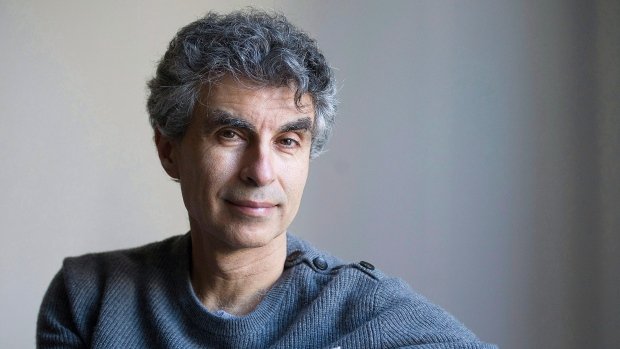Montreal : Artificial Intelligence Capital of the World

Montreal's burgeoning AI community emerged organically, largely thanks to the work of Université de Montréal's Yoshua Bengio.

The IVADO’s ( Institute of Data Valorization ) scientific director is the force driving Montreal’s advantage in data science
Bengio runs the world-renowned laboratory, the Montreal Institute for Learning Algorithm.
He's considered a trailblazer in the field of AI called deep learning. Instead of having to be programmed, deep learning gives computers the ability to "learn" to solve complex problems,
an approach to AI that he, and very few others, have been working on since the ‘80s.
It wasn’t until about 10 years ago that this unpopular method began to be the hottest area in AI research.
Institute of Data Valorization (IVADO), is a collaboration between the universities Polytechnique, Université de Montréal, and HEC.
U de M and McGill University are the academic bedrocks on which Montreal’s AI sector has been built. About 150 AI researchers toil at the two institutions, making the city one of the world’s largest basic deep learning centres.
This vision for making an impact with AI is what’s helped draw much of the talent to Montreal rather than big tech.
This last fall, the Canadian government gave IVADO $93 million and seven years to make Montreal “an internationally renowned center for artificial intelligence.”
The grant from the Canadian government will tip the scales even more in Montreal’s favour.
Artificial intelligence is seen now as a strategic asset to governments and to corporations. The fight for resources is global.
The rise of Montreal Canada as AI hubs owes a lot to provincial and federal government funding.
Ottawa promised $213 million last September to fund AI and big data research at four Montreal post-secondary institutions.
Quebec has earmarked $100 million over the next five years for the development of an AI “super-cluster” in the Montreal region.
Bengio, however, has brushed off the offers to go private. Instead he has focused on attracting and developing an independent group in Montreal, which is now the biggest in the world.
Another advantage of Montreal's is its cluster of academic institutions, rivalled only by Boston. AI will mean deep, underlying shifts in the computing of a given industry and researchers need close access to domain experts to develop it properly. For instance, those working on AI applications in medicine benefit greatly from having some of the top health science experts right next door
Bengio is unmistakably optimistic about the potential: “I believe AI is going to be one of, if not the, largest growth areas of the economy over the next few decades. It has been growing very fast in the last few years but I think it's just the tip of the iceberg…. We can be here in Canada, and Montreal in particular, at the centre of the action if we take the right decisions now.”
Microsoft has launched a new venture fund whose first investment — an undisclosed amount — is in Element AI.
The company, Montreal-based Element AI, was founded last October to help companies that might not have much experience in artificial intelligence start using the technology to change the way they do business.
It's equal parts general research lab and startup incubator, with employees working to develop new and improved techniques in artificial intelligence that might not be fully realized for years, while also commercializing products and services that can be sold to clients
Montreal-based Element AI in June 2016 raised $135M from high-profile tech investors the
artificial intelligence incubator and lab gets backing from tec giants including Microsoft, Intel and Nvidia.
The Series A round was led by Data Collective, a Silicon Valley-based venture capital firm, and included participation by Fidelity Investments Canada, National Bank of Canada, and Real Ventures.
New investments will help Montreal "capitalize on its advance'' by attracting corporations and startups to set up in the city — reversing the brain drain that has seen many of the brightest researchers leave to find employment elsewhere.
Shibl Mourad, the head of engineering for Google's Montreal office, says the company hopes to help turn the city into a "super-cluster'' of AI knowledge that will attract corporate investors, burgeoning startups and researchers.
All eyes are on Montreal these days as a hub for deep learning. “Clearly it’s a place where everybody wants to be if we want to tap into that talent,” says Nagraj Kashyap, corporate vice-president of Microsoft Ventures in San Francisco.